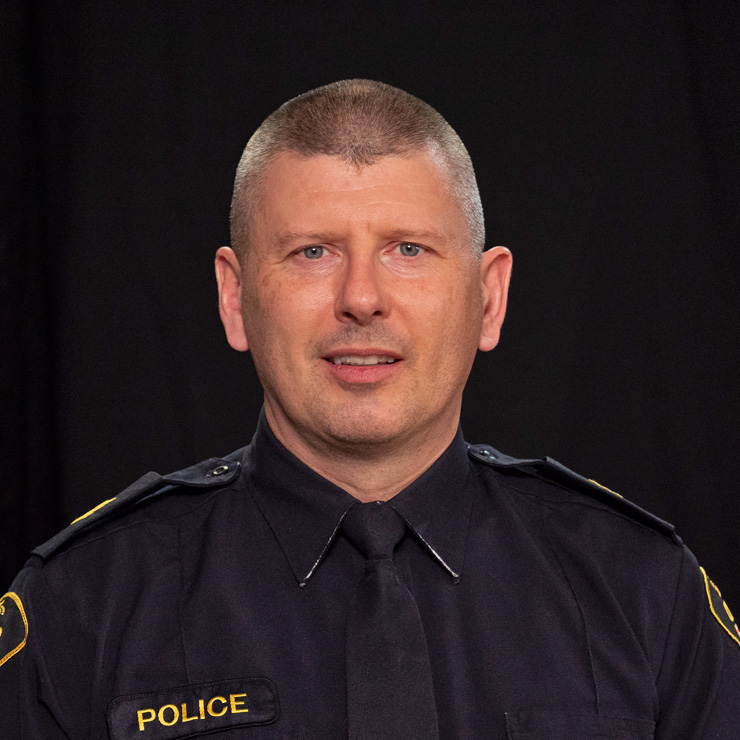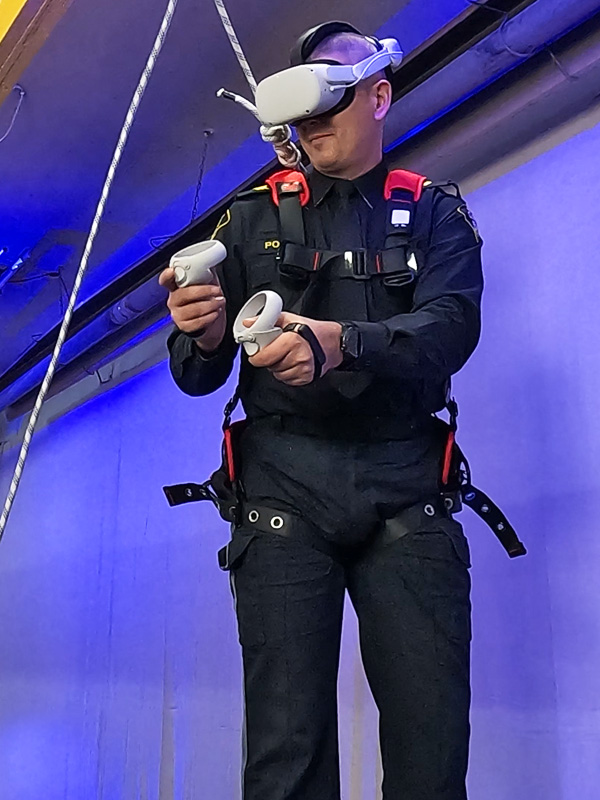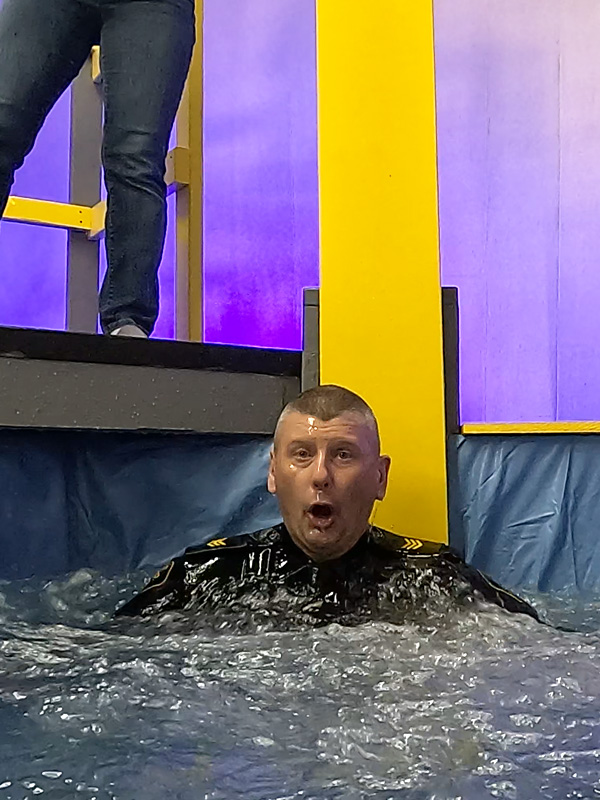Any time Kerry is on a canoe or other paddlecraft, he’s always wearing a lifejacket. It’s second nature. “I will always wear a lifejacket. I have a jacket that I’m comfortable with. I like wearing, and it’s always on, along with my little rescue emergency kit that’s in the canoe as well, tethered on because I know that the chances of going in and struggling to get back onto a canoe that’s capsized is very challenging.”

Subject 33's Experience
Sgt Kerry S. - OPP Highway Safety Division
Kerry has been a recreational boater for close to 15 years. His family had a boat and started camping and cottaging when his kids were young. They enjoyed tubing and going for boat rides on pretty calm water in smaller lakes. They also enjoyed paddling in Muskoka country in both canoes and kayaks but have now moved to Georgian Bay where it’s a little bit bigger water, but with the same boat.
Professionally, Kerry has gone on many ‘ride alongs’ doing enforcement patrols on waterways, through the province of Ontario, but never as the captain or as the person in charge of the vessel. He states, “Being able to watch these operators on their boats, you know, it rubs off. I can take a lot of things that I see and learn to my own personal recreational boating as well.”
Watch Sgt. Kerry S. go through the experiences below.
“Being able to watch these operators on their boats, you know, it rubs off. I can take a lot of things that I see and learn to my own personal recreational boating as well.”
"Kerry found that the Virtual Reality (VR) experiences were going fine…until he started losing balance and unexpectedly fell. He found not having control over when he fell in was very unnerving.
“I'm guessing I probably stopped breathing for a second or two. I don't know if I would have gasped or if I would have just held my breath. I wasn't in the act of talking and I wasn't winded at the time. If I was winded, I think that might have been different.”
“I'm guessing I probably stopped breathing for a second or two. I don't know if I would have gasped or if I would have just held my breath.”
"Kerry wanted to participate in these Shock Factor experiences to better understand some of the other issues around drownings and why people suddenly get into the water and are not able to come up, and how he can translate some of his learned experiences in his role as an educator to the public. He’s done cold water immersion several times already and knows that jumping into ice cold water is a definite shock to the system. But that’s going into the water willingly, not unexpectedly.
“I gasped as I went in, and I think I took a slug of water in my mouth because I was trying to catch my breath. And that puts you right into panic mode. I could feel either my respirations or my heart rate probably spiking. I was not in a comfortable state. I wanted to get out of that. That was not a pleasant experience.”



